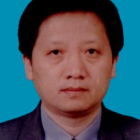Cohen, Alasdair

Alasdair Cohen is an Assistant Professor of Environmental Epidemiology in the Department of Population Health Sciences and the Public Health Program at Virginia Tech. He also serves as Research Director for the Berkeley/China/Virginia Tech Program for Water & Health. Dr. Cohen conducts research on drinking water (contamination, treatment, and supply) and environmental health in low-income rural areas, with a focus on developing safe water programs. He has over ten years of international experience and has worked for multiple United Nations agencies on projects developing and evaluating water- and poverty-related indicators, including the 2008-2014 design and management of a project to construct the Multidimensional Poverty Assessment Tool. Cohen received his PhD in Environmental Science, Policy & Management, and an MPH in Epidemiology, from the University of California, Berkeley, as well as an MSc in Water Science, Policy, & Management from the University of Oxford. Prior to coming to Virginia Tech, Dr. Cohen was a Project Scientist at UC Berkeley where he also taught courses on Randomized Controlled Trials and Water & Development. At Virginia Tech he will be teaching courses on Drinking Water & Health and Environmental Health.
Colford, Jack

Jack Colford is a Professor of Epidemiology at the School of Public Health at the University of California, Berkeley. Professor Colford trained at Johns Hopkins (medical school), UC San Francisco, (Internal Medicine residency, Infectious Diseases fellowship, and HIV/AIDS fellowship), Stanford Hospital (Chief Medical Resident), and UC Berkeley (MPH and PhD in Epidemiology). Colford’s principal research focus is on interventions designed to reduce diseases related to water, sanitation, hygiene, and nutrition. He has been the Principal Investigator of four NIH R01 grants as well as a number of NIH R03 and R21 awards. Presently, he is the Principal Investigator of the WASH Benefits trial, a seven-arm RCT enrolling 15,000 children in Kenya and Bangladesh designed to evaluate the separate and combined impacts of early childhood interventions targeting water, sanitation, hygiene, and nutritional status on growth and development (funded by the Bill and Melinda Gates Foundation). Professor Colford teaches graduate courses on Intervention Trial Design, Impact Evaluation, and Epidemiologic Methods and has received clinical and classroom teaching awards at UC Berkeley, as well as Stanford and UC San Francisco where he has taught in the past.
Li, Hongxing

Li Hongxing is the vice director of the Division of Drinking Water Hygiene at the NCRWSTG, China CDC, where he was worked for more than 10 years. Dr. Li’s research fields include water, sanitation and hygiene, with a focus on rural areas. Li also focuses on water quality management and related policy research. Supported by UNICEF and WHO, he and his colleagues were the first to introduce Water Safety Plans (a drinking water quality management tool) into rural China, using this tool to manage rural drinking water supplies from source to end users.
In 1996 and 1997, as a key staff member, Li Hongxing participated in the National Rural Drinking Water and Environmental Health Status Survey supported by NPHCC. In this nationwide survey, basic information about drinking water quality, sewage treatment, personal hygiene and other environmental information in China’s rural areas were collected and analyzed. Based on the results of this nation-wide survey, the NPHCC implemented a series of new water and sanitation policies. Li is also responsible the technical management of a nationwide rural drinking water monitoring system. Li also authored series of policy research briefs and reports, such as the Study on the Construction of Rural Drinking Water Safety Guarantee System, and has published numerous articles in English and Chinese language peer-reviewed journals.
Luo, Qing

Luo Qing is an assistant research fellow at the NCRWSTG, China CDC. Since 2003, Luo Qing has been focused on epidemiological theory and applied epidemiological research studies. Qing’s primary research focus is on the application of epidemiological methods for the environmentally-related disease prevention and control.
Luo Qing participated in a large research project on the integrated management of cancer in Huaihe River, China (2011-2016) and also conducted a national rural environmental health monitoring project in China (2011-2016) as a primary participant in the project which was led by National Health and Family Planning Commission of the People’s Republic of China. Luo has also engaged in the study on the risk assessment and management of water quality and investigating the potential for sustainable household drinking-water treatment in China. She assisted with the managed of a household water treatment project in Guangxi Province (2013-2014) and led the management of that’s projects subsequent replication in Henan Province.
Presently, she is working on research studies on environmentally-related disease epidemiology, environmental health related factors, and environmental health policy evaluation systems.
Ray, Isha

Isha Ray is the co-director of the Berkeley Water Center and an Associate Professor in the Energy and Resources Group at the University of California, Berkeley (UC Berkeley), where she has been since 2002. Professor Ray also serves as a key advisor to UN Women for their sustainable development and water and sanitation programs, is a member of the Portfolio Advisory Panel of Water at the Acumen Fund, and also serves as an Advisory Member at AddVenture. She has extensive past and ongoing experience in the nonprofit sector on sustainable rural development in India, and international development- and freshwater-related issues. Professor Ray’s research interests are the politics and economics of water allocation and use, common property resource management, and access to water for the rural and urban poor, especially in low and middle-income countries. In addition to her China work, her research projects in India and Tanzania focus on access to water and sanitation for the rural and urban poor, and on the role of technology in improving livelihoods. Prior to coming to UC Berkeley, Professor Ray was an analyst on economics and institutions at the Turkey office of the International Water Management Institute.
Tao, Yong

Director Tao Yong manages the National Center for Rural Water Supply Technical Guidance (NCRWSTG), a specialized agency of the Chinese Center for Disease Control and Prevention (China CDC). Director Tao primarily conducts work and research on rural drinking water supply, treatment, and health; rural environmental sanitation surveillance; health risk evaluation; and the drafting of related national technical standards.
Director Tao has managed more than ten national research projects, sanitary standard studies, and assessment of national standards and regulations related to environmental health and the like, including national surveys that cover 60-70,000 households. He has also developed and led numerous projects and collaborations with international multi-lateral agencies, such as WHO, UNICEF and ADB on projects related to drinking water, environmental health, and individual hygiene in rural China. As deputy director of the national project office, professor Tao also spent four years engaged in the management of a World Bank-sponsored rural drinking water and sanitation improvement program in China. Tao’s research reports, for example, the “Strategy Research of Rural Water Supply and Environmental Sanitation in Chinese Poverty Areas” and the “Development Strategy Research Report of Latrine Improvement in Rural China”, have played a key role in central government policy-making for China’s water and sanitation policies, programs, and investments. In addition to this work, Director Tao also teaches and mentors graduates students at the China CDC.
Zhang, Qi

Zhang Qi is an associate research fellow at the NCRWSTG and China CDC and co-Research Director for the Berkeley/China-CDC Program for Water & Health. Her primary research and work focus on rural water supply and drinking water quality risk evaluation.
Qi has served as a technical consultant for the 2001-2006 World Bank-supported program on water supply and environmental sanitation in rural China. As a core researcher, Zhang Qi has engaged in the research of “Establishing of Risk Evaluation System of Drinking Water Quality”, which is one of the sub-projects of “the 12th five-year technical and scientific research project”, financed by China’s central government. These research results help provide technical support and a general information platform for water quality risk management in China. Zhang Qi is also in charge of drafting the “Technical Standard of Hygienic Evaluation for Rural Safe Drinking Water Supplying Engineering”, and a national technical standard for China’s Hygienic Management Standard of Rural Centralized Water Supply. These research and policy outputs will be used to inform the construction and management of China’s rural safe drinking water supply engineering projects in the coming years.In addition, Zhang Qi serves as a key advisor for a charity project (“Mother Cistern”) which focuses on drinking water problems in poor, water-scarce, areas of rural China. This project was launched by the China Women’s Development Foundation, one of the largest non-government charity organizations in China.
Zhao, Liang

Zhao Liang is a research assistant at the NCRWSTG, China CDC. Zhao received her MPH from University of Glasgow. Her research and work includes sanitation evaluation and risk management in the context of rural water supply projects, drinking water quality and safety monitoring, and individual hygiene and sanitation.
Zhao Liang has engaged in the “Berkeley/China-CDC Program for Water & Health” since 2016 and is mainly responsible for supporting the implementation of the Electric Kettle study, including scoping, piloting, enumerator training, baseline and mid-term survey, drinking water sample collection, health intervention on individual hygiene and sanitation, data collection and analysis.
Zhao also participated in a large research program on water safety testing, monitoring, risk assessment and early warning and prediction (2013-2016), financed by China’s central government. The program carried out systematic and comprehensive research on the key technologies and problems in drinking water safety, and provided technical support to the health department.
Presently, Zhao Liang serves as a key person for the “Mother Cistern Green Village” project, which focuses on water supply problems and potential risks related to the South-to-North Water Diversion Project. This project is supported by the China Women’s Development Foundation.
